Embarking on a Pay-Per-Click (PPC) campaign can feel like navigating through a dense fog without a map. However, with the right tools and knowledge, the path to success becomes much clearer. Google’s Keyword Cost Estimator and innovative keyword research tools like the ones I’ve created are like beacons in the PPC landscape, guiding advertisers to make informed decisions that drive campaign success. This guide is designed to inform you on everything you need to know about keyword cost estimation.
Whether you’re a small business owner taking your first steps into online advertising or a marketing professional looking to refine your strategy, understanding the nuances of keyword costs is crucial. It’s not just about finding the right words, it’s about unlocking the potential of each click. This article will navigate you through the process, from the basics of keyword costs to advanced strategies for maximizing your budget and enhancing your campaign’s performance.
As always, my guides aim to focus on practical tips and real-world applications, so with that in mind, let’s figure out how to leverage Google’s Keyword Cost Estimator. Then I’ll tell you a little bit about the keyword research tool I made.

BTW, it’s 100% free to use!
By the end of this article, you’ll have a deep understanding of how to tackle keyword research so you can find those low-cost opportunities.
Understanding Keyword Cost Estimation for Google Ads
As a business owner myself, I know how important it is to look at costs, and when it comes to Google keyword cost estimation specifically, there are several methods and tools available. These tools help advertisers deduce the potential costs of keywords for Google Ads campaigns. Knowing the cost of keywords is crucial in planning and optimizing your PPC (Pay-Per-Click) campaigns. This section will explore how you can estimate these costs effectively to ensure the best use of your advertising budget.
Why is estimating keyword cost important? It helps in determining your campaign’s budget and in selecting keywords that offer the best value for your money. High-cost keywords might drive traffic, but they can also quickly deplete your budget. On the other hand, lower-cost keywords might offer a more cost-effective way to reach your target audience. The key is to find a balance that maximizes both traffic and conversions within your budget.
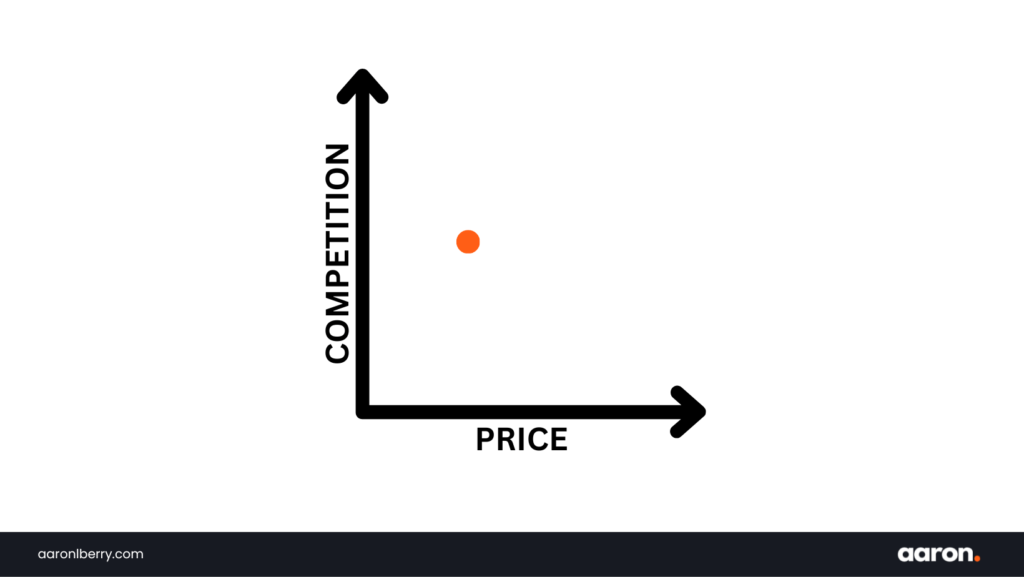
In the following sections, we’ll go over various tools and methods for estimating keyword costs, including insights from a keyword research tool I made myself! You’ll learn how to analyze market trends, optimize your keywords for better ad placement, and adjust your campaigns based on these insights to improve overall campaign performance.
Understanding Keyword Costs and Their Impact on PPC Campaigns
When it comes to PPC campaigns, the cost of keywords plays a pivotal role. Each keyword you choose for your campaign has a cost associated with it, known as the Cost Per Click (CPC). This cost can vary significantly based on factors like keyword competition, search volume, and relevance.
But why does this matter?
Firstly, the CPC of your chosen keywords directly impacts your advertising budget. Selecting high-cost keywords means you might burn through your budget quickly, potentially reducing the duration and reach of your campaign.
On the flip side, targeting lower-cost keywords might allow for a more sustained and extensive campaign, but these keywords may not drive as much traffic or be as relevant to your target audience. The trick is finding those low CPC keywords with enough volume that are lower competition than the higher volume keywords.
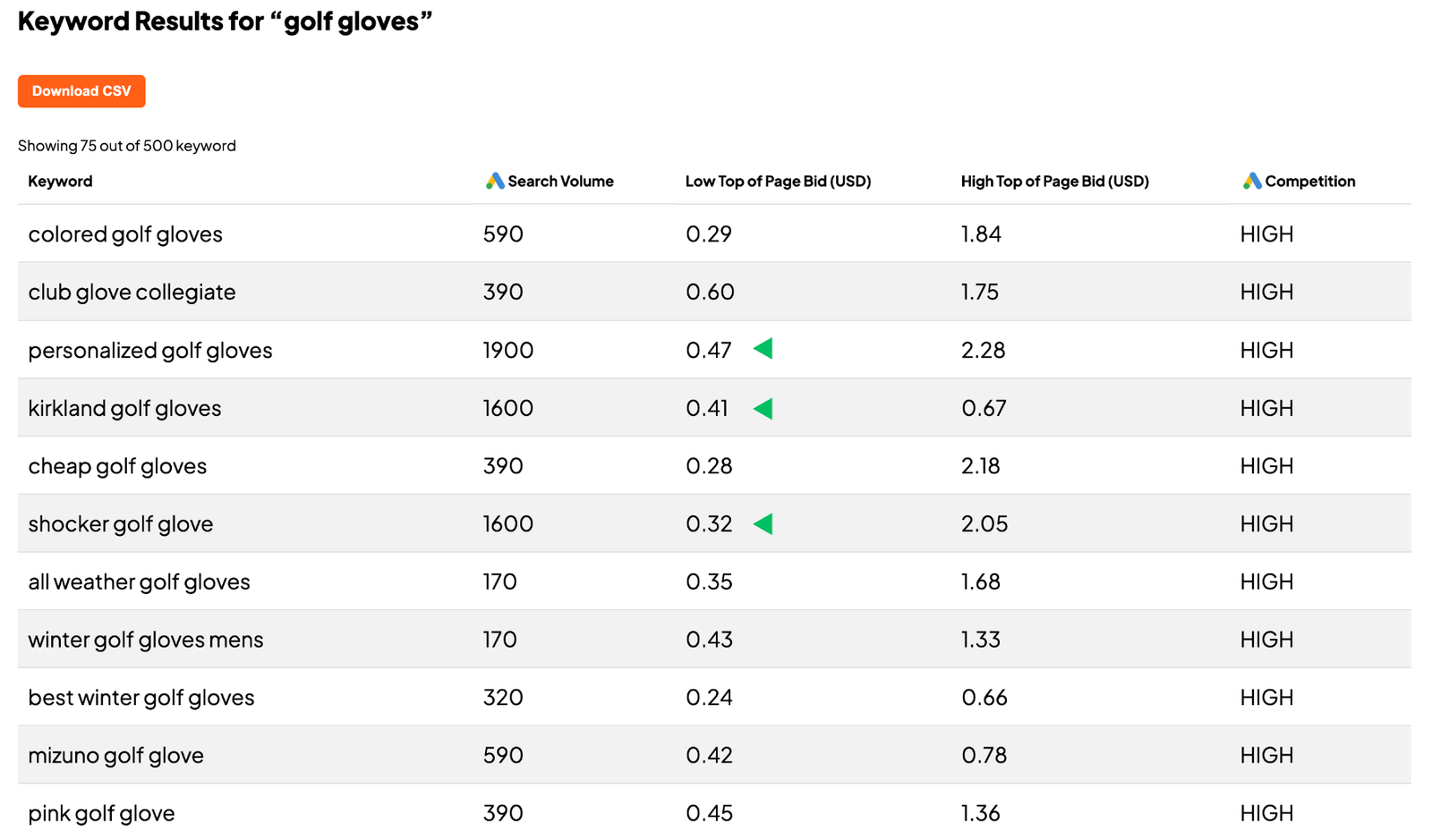
If you think about it, the cost of keywords isn’t just about budgeting, it’s about strategic planning. The right keywords can lead to better ad placements, higher click-through rates (CTR), and ultimately more conversions. Understanding the nuances of keyword costs helps in refining your targeting strategy, ensuring you’re not only reaching the right audience but doing so in a cost-effective manner.
In the upcoming sections, we’ll explore how to estimate these costs using various tools and techniques, and how integrating tools like my keyword research tool can enhance your keyword selection process, making your PPC campaigns more efficient and effective.
Step-by-Step Guide – How to Use Available Tools to Estimate Keyword Costs
Estimating the cost of keywords for your Google Ads campaigns doesn’t have to be a guessing game. There are several tools and methods at your disposal to make informed decisions. Let’s walk through a step-by-step guide on how to use these tools effectively.
- Start with Google Ads Keyword Planner: This free tool by Google is a great starting point for keyword research. It provides estimates for the average cost per click (CPC) of keywords and helps in discovering new keyword ideas based on your products or services.
- Analyze Competitor Keywords: Tools like SEMrush or Ahrefs offer insights into the keywords your competitors are using and their estimated CPC. This can give you an idea of the market rate for specific keywords in your industry.
- Use Third-Party Keyword Research Tools: Tools like our in-house keyword research tool and SEO tag extractor can offer additional insights and help in identifying cost-effective keywords that might be overlooked by others.
- Consider Long-Tail Keywords: These are longer, more specific keyword phrases that often have lower competition and hence lower costs. They can be particularly effective for targeting niche audiences.
- Monitor and Adjust Regularly: Keyword costs can fluctuate based on market trends and competition. Regular monitoring using these tools will help you stay on top of changes and adjust your strategy accordingly.
By following these steps and utilizing a combination of these tools, you can effectively estimate and optimize your keyword costs, leading to more efficient and successful PPC campaigns.
Maximizing PPC Campaigns with Our Free Keyword Tool
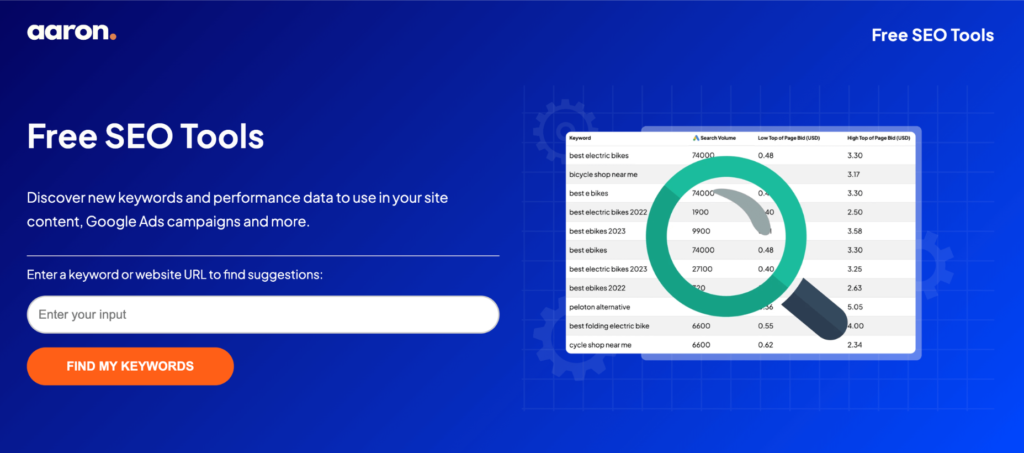
I’m thrilled to introduce a game-changer in the world of search marketing, our FREE Keyword Tool. This advanced, user-friendly tool is packed with features to simplify and elevate your keyword research, making it an indispensable asset for both organic and paid search campaigns.
Simplifying Keyword Research
Our easy-to-use tool transforms the often tedious task of keyword research into a swift and straightforward process. It’s designed to help your business attract more traffic, whether through organic search or paid channels. The tool’s ease of use and efficiency make keyword research accessible to everyone, from beginners to seasoned marketers.
Unique Features and Benefits
- Comprehensive Keyword Suggestions: Receive hundreds (500 to be exact) of relevant keyword ideas, complete with competition levels and estimated CPC, at no cost.
- User-Friendly Interface: Simply enter a keyword, select your industry and country, and receive a list of related keywords, including long-tail variations.
- Competitive Insights: Entering a competitor’s website URL provides contextual keyword ideas, giving you an edge in your market.
- Accurate, Google-Sourced Data: Our tool uses Google’s research API, ensuring the data you receive is both accurate and relevant.
- Geographical and International Data: Tailor your keyword strategy based on location, with options ranging from over 23 countries to specific U.S. states.
A Top Alternative to Google’s Keyword Planner
Our Free Keyword Tool is not just an alternative to Google’s Keyword Planner, it’s an enhancement. It integrates multiple data points and offers concrete search volumes, providing a broader view of your keyword landscape. Whether you’re looking for high-intent keywords, analyzing competition levels, or exploring search volumes, this tool equips you with the insights you need for impactful decision-making in your PPC and SEO campaigns.
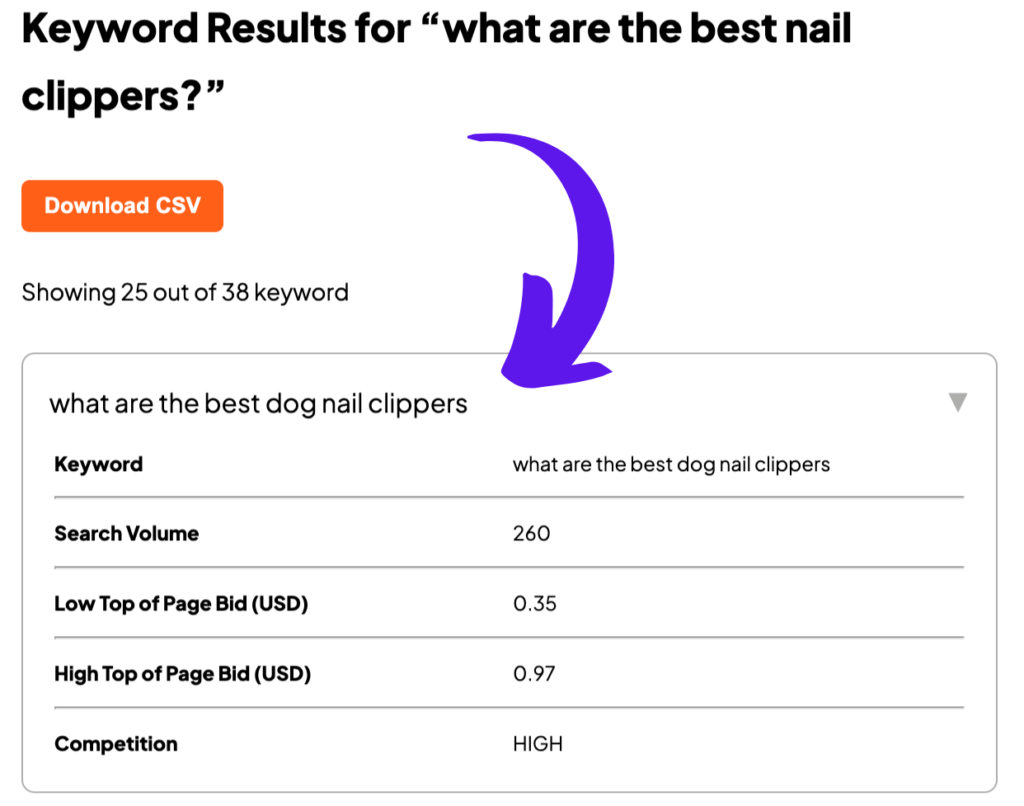
Staying ahead of keyword trends is vital in the dynamic world of search marketing. Our tool allows you to monitor changes in search volumes and competition, helping you adapt to trends and shifts in your industry. It’s more than just a keyword research tool; it’s a comprehensive solution for staying ahead in your marketing efforts.
Analyzing Market Trends with Keyword Cost Data
Understanding and adapting to market trends is a crucial aspect of running successful PPC campaigns. Keyword cost data plays a vital role in this process. By analyzing this data, you can gain insights into what’s trending in your industry, what your competitors are focusing on, and how consumer search behaviors are evolving. Use tools like Google Trends to help you hone in on hot markets or niches.
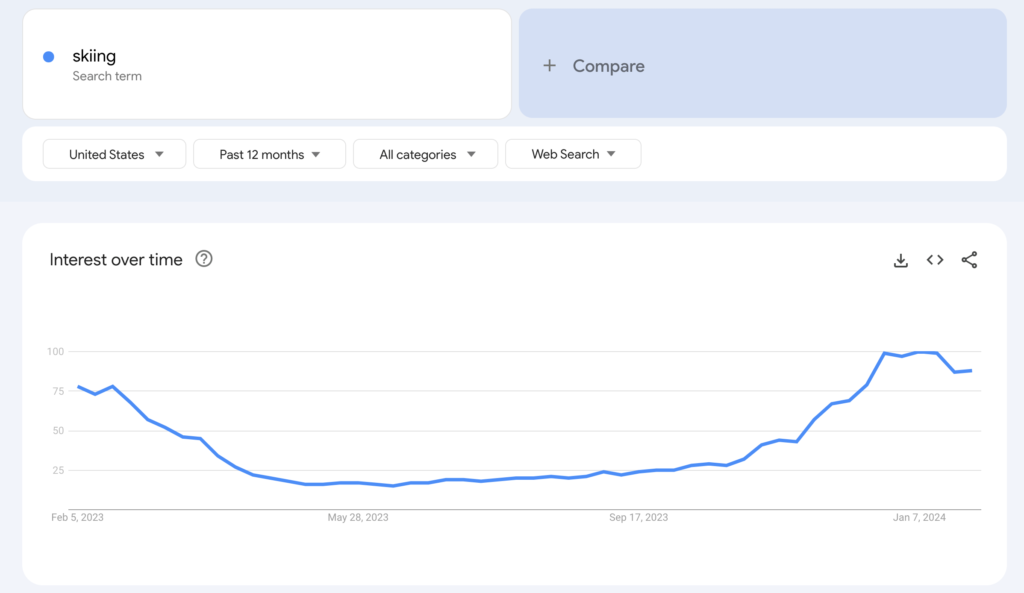
Utilizing Keyword Cost Data to Identify Trends
Keyword cost data can reveal a lot about market dynamics. For example, a sudden increase in the cost of certain keywords might indicate a growing interest in specific products or services. Conversely, a decrease might signal a waning interest or an oversaturated market. By staying attuned to these fluctuations, you can adjust your campaigns to align with current trends and consumer demands.
Competitive Advantage Through Data Analysis
Another advantage of analyzing keyword cost data is gaining a competitive edge. By understanding the keyword strategies of your competitors, you can identify gaps in the market or areas where you can outperform them. This might involve targeting less competitive keywords that still hold high potential for conversion or adjusting bids on high-competition keywords to achieve better ROI.
Adapting to Consumer Search Behavior
Consumer search behavior is constantly evolving, and keyword cost data can be a window into these changes. For instance, an emerging trend might be indicated by new keywords gaining popularity. By quickly adapting your keyword strategy to include these emerging terms, you can capture new market segments and stay ahead in the game.
Ultimately, the key to leveraging keyword cost data in market trend analysis is to stay flexible and responsive. Regularly reviewing and updating your PPC strategy based on current data ensures that your campaigns remain effective and relevant in a fast-paced digital landscape.
Optimizing Your Keywords for Better Ad Placement and Cost Efficiency
Choosing the right keywords is just the first step in a successful PPC campaign. The real magic happens when you optimize those keywords for better ad placement and cost efficiency. This involves a mix of strategic bidding, continuous monitoring, and tweaking your keyword selection based on performance data.
Strategic Bidding for Better Placement
Ad placement on search engines is highly competitive, and your bid amount plays a crucial role. However, bidding high doesn’t always mean better placement. It’s about finding the right balance between bid amount and keyword relevance to your ad. Strategic bidding involves setting your bids based on keyword performance, competition level, and budget constraints to ensure the best possible ad placement.
Improving Quality Score
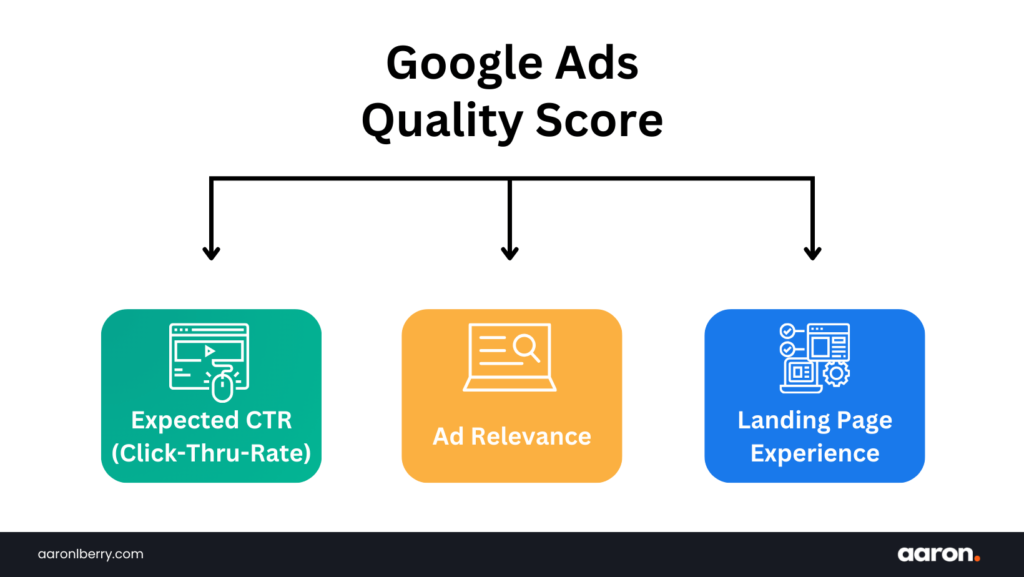
Google Ads evaluates the quality and relevance of your keywords and ads through the Quality Score. A higher Quality Score can lead to better ad placements and lower costs. To improve your Quality Score, focus on creating relevant ad copy, enhancing your landing page experience, and selecting keywords that closely match your ad’s intent.
Utilizing Negative Keywords
Negative keywords are a powerful tool for optimizing your PPC campaigns. By identifying and excluding irrelevant or low-performing keywords, you can prevent your ads from appearing in unrelated searches. This not only improves your campaign’s focus but also reduces wasted spend, enhancing overall cost efficiency.
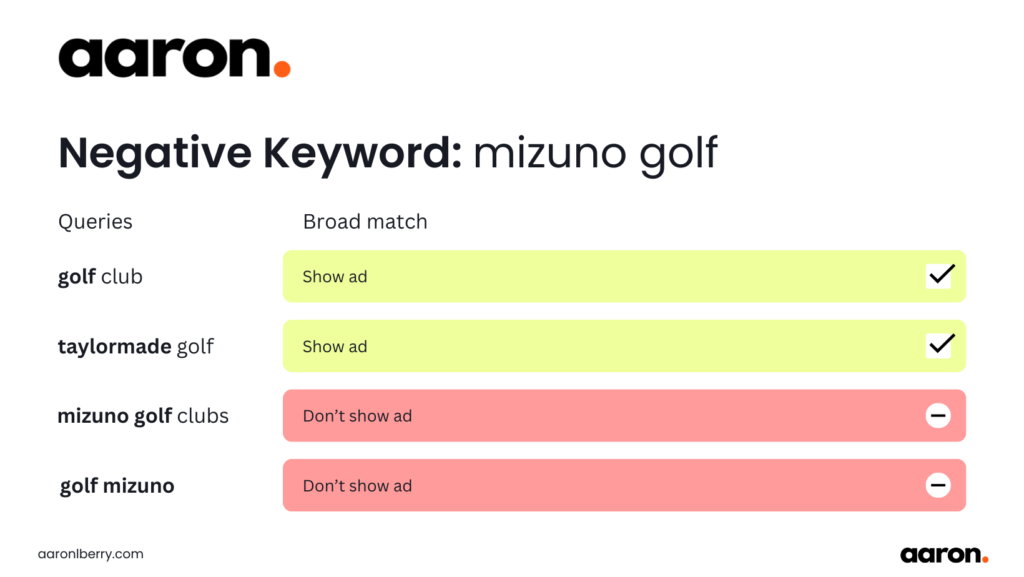
Keyword Match Types and Adjustments
Google Ads offers several keyword match types, including broad match, phrase match, and exact match. Each has its advantages and considerations for campaign strategy. Regularly reviewing and adjusting your keyword match types based on performance data can significantly improve your ad relevance and efficiency.
Optimizing your keywords for better ad placement and cost efficiency is an ongoing process. It requires attentiveness to performance data, flexibility in strategy, and a willingness to experiment. By applying these strategies, you can enhance the effectiveness of your PPC campaigns, achieving better results at a lower cost.
Enhancing Keyword Research with AI: Combining Our Tool and ChatGPT
If you really want to know a power move, combining the analytical power of our free keyword tool with the conversational intelligence of AI platforms like ChatGPT can do wonders for your workflow and marketing inspiration. This synergy allows for a more nuanced understanding of keyword strategies, enabling marketers to uncover hidden opportunities and refine their search marketing campaigns with unparalleled precision. I like to ask GPT for keyword ideas, and then cross-reference those with a keyword research tool to verify the data behind the search query.

I asked chat GPT for 50 keyword ideas related to golf equipment and then I can take any of those keywords and look them up with a keyword research tool.

Streamlining Keyword Discovery
Our Free Keyword Tool excels at generating a comprehensive list of keyword suggestions, including long-tail keywords and niche phrases. When paired with ChatGPT, you can further analyze these keywords, exploring related topics and questions that potential customers might be asking. This dual approach ensures a thorough exploration of your keyword landscape, uncovering valuable insights that might otherwise be missed.
Content Strategy Development
ChatGPT can assist in crafting content strategies that resonate with your target audience by analyzing the keywords identified by our tool. It can generate content ideas, suggest headlines, and even help draft initial content outlines. This integration not only streamlines the content creation process but also ensures that your content is closely aligned with your keyword strategy, boosting SEO and engagement.
The nice thing about using AI is there really are no rules! Just play around with the prompts and you’ll be amazed with what you can come up with. I asked chat GPT to give me a topic cluster on men’s suits and the output was quite good.
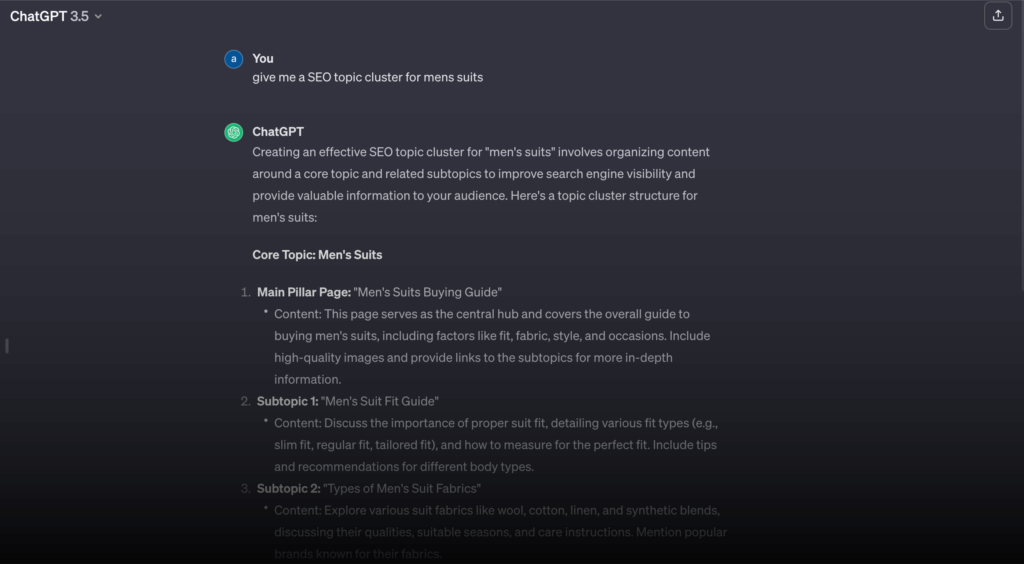
Competitive Analysis
Combining our tool’s ability to analyze competitor keywords with ChatGPT’s comprehensive knowledge base allows for an in-depth competitive analysis. ChatGPT can provide insights into potential strategic moves, offering advice on how to position your keywords and content for maximum impact against your competitors.
Enhancing PPC Campaigns
For PPC campaigns, this combination is invaluable. Our tool provides the data-driven foundation, offering detailed information on competition levels and estimated CPC. ChatGPT complements this by suggesting ad copy variations and optimizing keyword groupings, making your PPC campaigns more effective and cost-efficient.
The integration of our Free Keyword Tool with AI technologies like ChatGPT opens new avenues for keyword research and campaign optimization. By leveraging both tools, marketers can achieve a level of insight and efficiency that was previously unattainable, driving significant improvements in both organic and paid search performance.
Advanced Techniques for Using Keyword Cost Information to Outperform Competitors
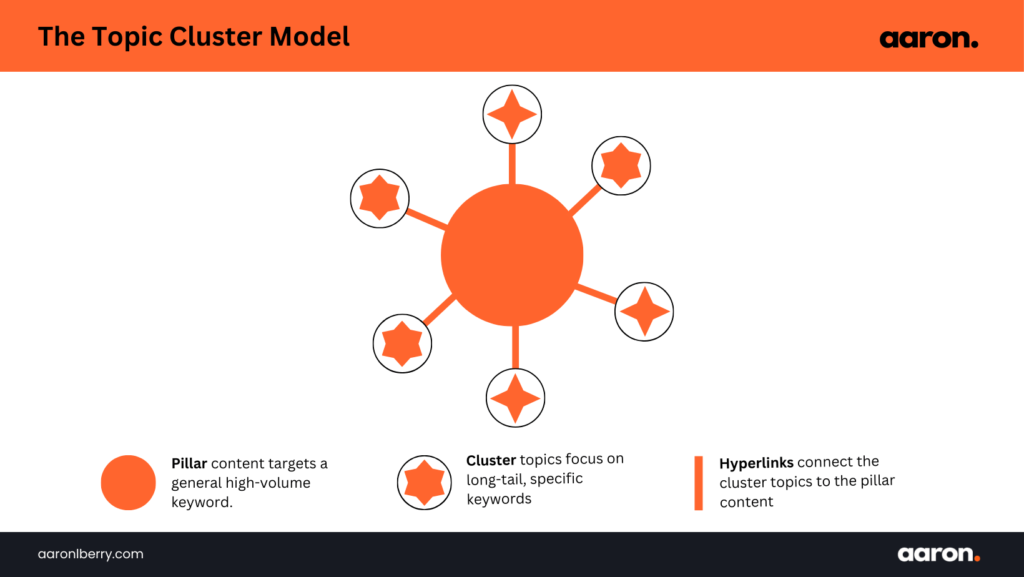
Having a deep understanding of keyword cost information is crucial for outperforming competitors in PPC campaigns. By employing advanced techniques that leverage this data, advertisers can make strategic decisions that not only optimize their budget but also enhance their campaign’s visibility and effectiveness. Let’s explore some of these advanced strategies.
Segmentation and Targeting
Use keyword cost data to segment your market and target your ads more effectively. By identifying which keywords are more cost-effective in reaching your desired audience, you can allocate your budget towards those that offer the highest return on investment (ROI). This approach allows for more focused campaigns that resonate with specific segments of your target market.
Dynamic Bidding Strategies
Implement dynamic bidding strategies based on real-time keyword cost data. Tools like Google Ads provide options for automated bidding that adjusts in response to the competitive landscape. By setting up rules based on cost thresholds and performance metrics, you can ensure your bids remain competitive without overspending.
Seasonal and Trend-Based Adjustments
Keyword costs can fluctuate based on seasonal trends and current events. By analyzing historical keyword cost data, you can anticipate these changes and adjust your campaign strategy accordingly. This might involve increasing bids on keywords likely to see a spike in demand during certain times of the year or scaling back on those that tend to decrease in value.
Exploring Alternative Keywords
When faced with highly competitive and expensive keywords, exploring alternative, less obvious keywords can be a smart move. These alternatives may have lower competition and costs, offering a backdoor way to reach your audience without engaging in a bidding war with competitors. Our Free Keyword Tool can help identify these opportunities, providing insights into untapped potential.
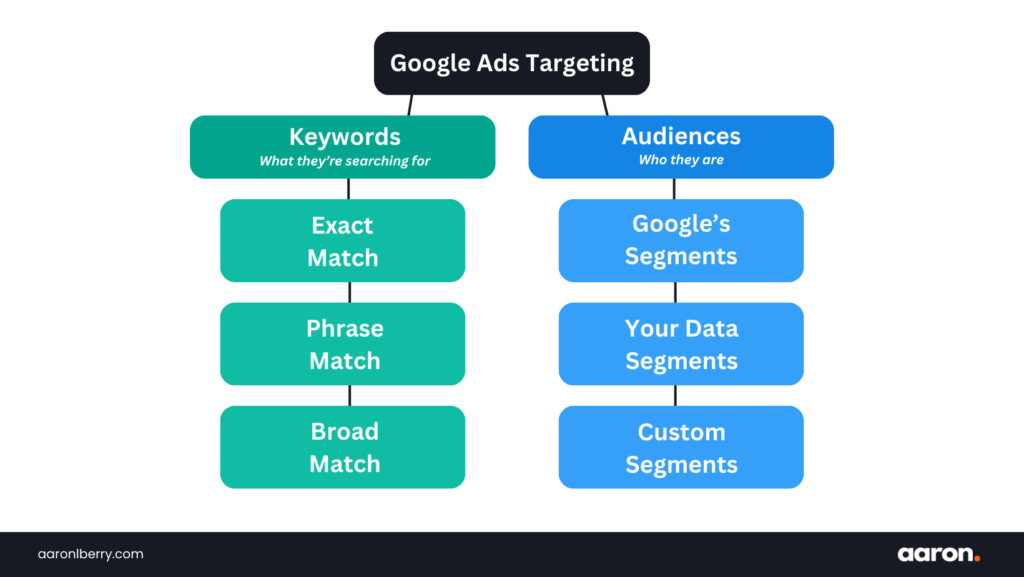
Combining SEO and PPC Efforts
Leveraging keyword cost information isn’t just for PPC, it can also inform your SEO strategy. By understanding which keywords are highly competitive and costly in PPC, you can focus your SEO efforts on ranking organically for these terms. This dual approach maximizes visibility and ensures a holistic online presence.
By adopting these advanced techniques, advertisers can use keyword cost information not just to manage their budgets, but to strategically outmaneuver competitors. The key is to stay agile, continuously monitor the landscape, and be ready to pivot your strategy based on the latest data.
Reviewing and Adjusting Your Campaigns Based on Cost Estimator Insights
The journey to PPC success is continuous, with keyword cost analysis playing a critical role in navigating this path. The insights gained from tools like our Free Keyword Tool and AI platforms like ChatGPT are invaluable. Yet, the real power lies in your ability to review and adjust your campaigns based on these insights. Let’s discuss how to make this process a part of your routine for sustained success.
Regular Performance Reviews
Set a schedule for regular reviews of your PPC campaigns. This involves analyzing performance data, comparing actual costs against estimates, and assessing the effectiveness of your keyword strategy. These reviews should focus not just on metrics like click-through rates (CTR) and conversions but also on the overall return on investment (ROI) of your campaigns.
Adjusting Bids and Budgets
Based on your performance review, adjust your bids and budgets to optimize for efficiency and effectiveness. This might mean increasing bids on high-performing keywords or reallocating budget from underperforming ones. The goal is to ensure that every dollar spent contributes to your campaign objectives.
Refining Keyword Strategy
Insights from keyword cost analysis may reveal new opportunities or suggest that certain keywords are no longer viable. Be prepared to refine your keyword strategy, adding new keywords or pausing those that are not delivering value. Continuous optimization is key to staying ahead in the competitive landscape of PPC advertising.
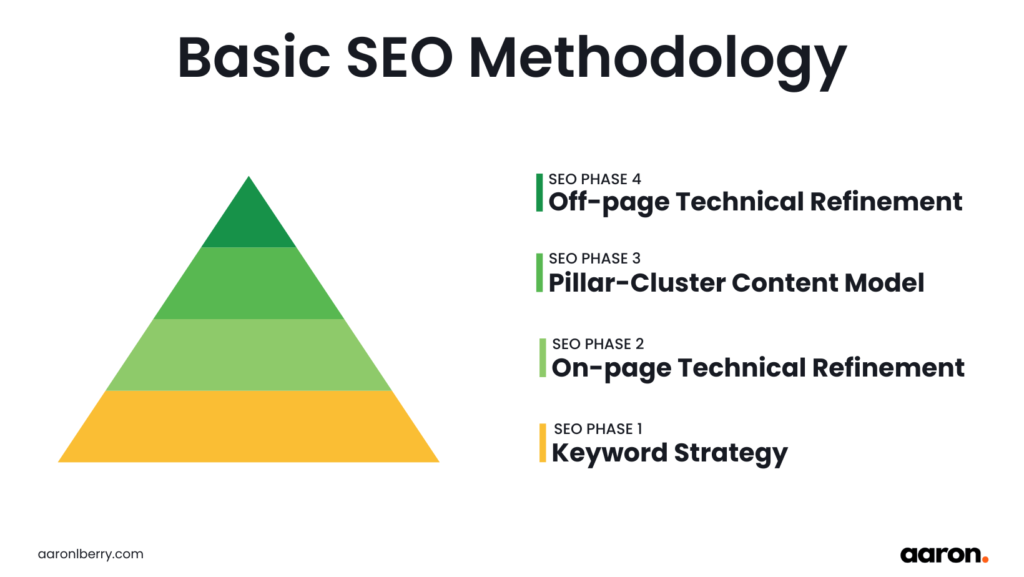
Leveraging Automation and AI
Consider leveraging automation tools and AI for more efficient campaign management. Features like Google Ads’ automated bidding can help manage bid adjustments in real-time, while AI platforms can offer predictive insights and recommendations for further optimization.
By staying responsive to the insights gained from keyword cost analysis and the advanced tools at your disposal, you can ensure that your PPC campaigns remain dynamic, competitive, and aligned with your marketing goals.
Hopefully, after reading this article, you have a much better understanding of how you can use a Google keyword cost estimator. We’ve gone over a lot of concepts and topics, we’ve also gone over some free tools that can help you estimate your Google keyword costs better. See you all next time!







